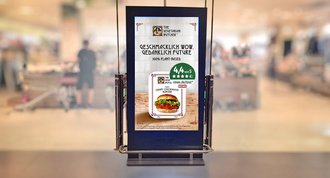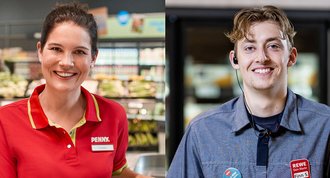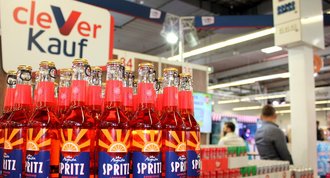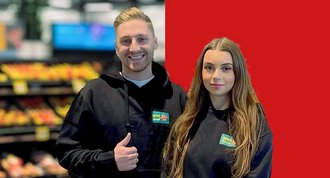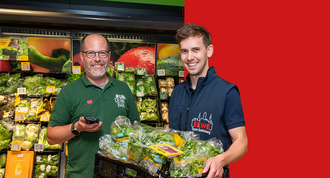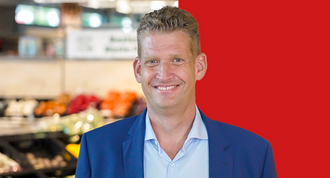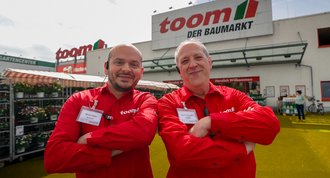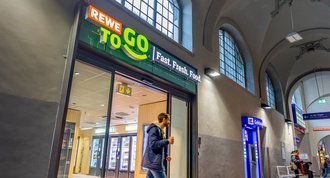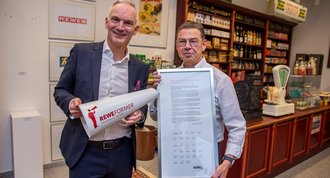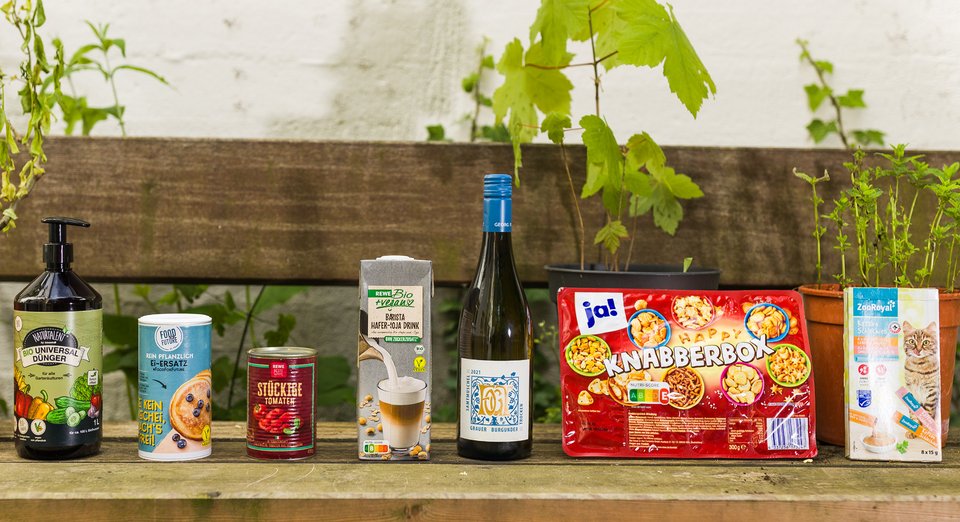
For the first time in several years, the market share of private labels in the food retail sector has increased again. According to GfK, they recorded an increase of 1.2 percentage points in the first three months of 2022 and achieved a market share of 34.6 per cent. We spoke to the heads of marketing at REWE, PENNY and Toom about the importance of private labels.
 Clemens Bauer
one: Why does REWE have private labels in its product range? Why are they important for retailers?
Clemens Bauer
one: Why does REWE have private labels in its product range? Why are they important for retailers?
Clemens Bauer: For us as a full-range retailer, it's all about differentiation. We are now also seeing more and more branded products at the discounters; our high-quality private labels help us to differentiate ourselves further.
one: What makes REWE store brands special?
Clemens Bauer: For me, REWE store brands are proof of our brand essence. With brands like REWE Bio, we have everything under control. We can talk to the manufacturers about supply chains or our quality requirements and specifications and develop the products as we see fit. This is not the case with branded products.
And with regard to manufacturers, a transformation is also currently taking place. Regionality is a good example of how retailers, with their own brands, recognised and embraced the topic and the trend earlier than the industry.
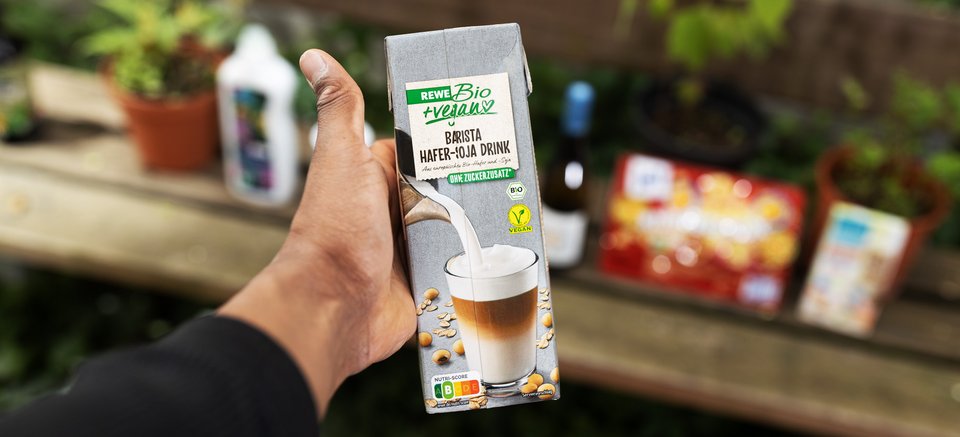
one: Which private label share is the right one?
Clemens Bauer: This is ultimately determined by the customers with their wishes and needs. Sometimes customers' needs change faster than the manufacturer's brand can keep up. As a retailer, we can then respond more quickly and adapt the range.
Or take the product range design: pet owners are a good example here. These customers often go to specialised retailers and avoid typical own brands. That is why we have developed Zooroyal, a private label at specialist retailer level, so that these customers can also find what they are looking for in REWE stores. We have taken a similar approach with the Weinfreunde range. This means that customers and their needs set the pace in everything we do in the private label sector. At the same time, we differentiate ourselves from the competition.
 Marcus Haus
one: Why are private labels important for retailers?
Marcus Haus
one: Why are private labels important for retailers?
Marcus Haus: From a strategic point of view, private labels combine several important functions. Firstly, they represent a unique selling point compared to the competition. We know from surveys that many of our customers shop at PENNY precisely because of these products. Own brands are considered to be equivalent to the brand in many respects - they are an important driver of footfall. In addition, private labels allow us to strengthen customer loyalty by building trust.
The relatively high inflation means that price perception plays an important role in purchasing decisions. The comparatively inexpensive private label products are therefore becoming increasingly important to customers. They give retailers greater financial leeway and at the same time greater independence from the industry. These aspects are particularly important in times when food companies are trying to push through ever higher prices.
With private labels, we can also react quickly to consumer trends. One example: With PENNY's own brand Food For Future, we are responding to the trend of consumers adopting a completely or partially vegan diet - paired with a lifestyle that prioritises Sustainability. Another example: we are responding to the convenience trend with our own brand PENNY Ready.
Own brands sometimes take on the role of brand umbrellas. This applies to Food For Future, Bäckerkrönung and Butcher's.
one: Surely this also applies to the basic brand?
Marcus Haus: The basic PENNY brand is the foundation of our own-brand company. That's why we support it with strong and attention-grabbing campaigns. Following the successful campaign with Olivia Jones, the basic brand will also serve as a vehicle in 2022 to communicate PENNY's value for money and at the same time generate sympathy. Another core objective of the campaign is to show that saving money has nothing to do with sacrifice and can also be a lot of fun at PENNY. There is no prominent testimonial in the new campaign, but "PENNY fans" appear as identification figures. They visually convey the campaign motto "Saving can be this exciting". The PENNY fans are entertaining and unconventional - just like us.
one: The strategic planning behind a campaign like this must be very complex?
Marcus Haus: The focus topics for the following year are already defined in the previous summer. The actual development process usually starts around six months before the start of the campaign. Nevertheless, we are very fast and agile.
one: PENNY invests heavily in its own brands - this reflects their importance in the product range. At the same time, however, it also offers a wide range of industrial brands. Which private label share is the right one?
Marcus Haus: In comparison, the proportion of own brands at PENNY is relatively high at around 60 per cent. Branded products have always been part of the PENNY range because they offer customers orientation. They serve as a reference in terms of price and quality. In this respect, they fulfil an important function. We will therefore continue to offer our customers an attractive and contemporary mix of own brand and branded products in the long term.
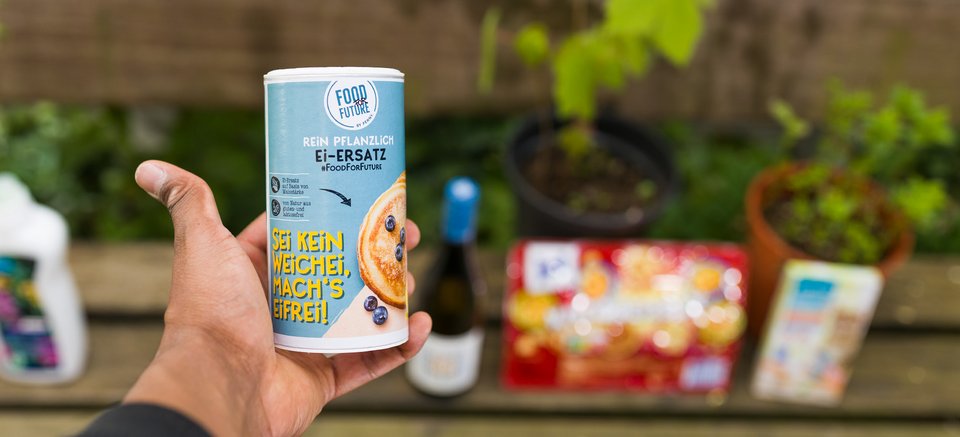
one: 60 per cent is a very high proportion. What makes PENNY's own brands so special?
Marcus Haus: We are very close to what our customers want and stand out thanks to our high level of innovation. Examples include the trends of avoiding food waste, regionality and organic: PENNY introduced the Naturgut organic heroes in 2016 as a pioneer in the industry. Since then, fruit and vegetables with blemishes have been a well-known success story. "We were also a first mover with the cross-group vegan own brand Food For Future, which PENNY was the first discounter in Germany to launch in 2020.
Another special feature is the diversity of the range: at PENNY, we have a large selection of own-brand products and offer customers a lot of inspiration as part of our promotional business.
one: In which areas will the own-brand range be further expanded?
Wherever it is beneficial for our customers, we will continue to strengthen the private label range. This applies in particular to socially important topics such as Sustainability.
 Dr Robert Wiegand
one: Why does the DIY sector have private labels? Why are they important for DIY stores?
Dr Robert Wiegand
one: Why does the DIY sector have private labels? Why are they important for DIY stores?
Robert Wiegand: Many of the well-known product brands can be found on the shelves of all relevant DIY store operators. This makes it almost impossible to differentiate as a retailer, which is not the case with private labels. Toom's own brands support our brand message "Respect for those who do it themselves." in the very best way, because it gives us the opportunity to help our customers realise their DIY projects. Our respect for DIY and do-it-yourselfers manifests itself in the more than 15,000 private labels in strong product quality and a modern, appealing packaging design that presents the relevant information for customers. And when it comes to Sustainability, our own brands are also a flagship and part of the proof of our Toom sustainability strategy. Our own brands are therefore a brand carrier par excellence.
But that's just the brand side. The own-brand products are above all a gross profit generator. We have everything under control here, often import ourselves and can influence the product and packaging. And one last aspect: DIY products are also a big issue in the online sector. A private label product is not as easy to compare via idealo as a branded product. So once we have convinced a customer, we are not so much under the scrutiny of the internet comparison.
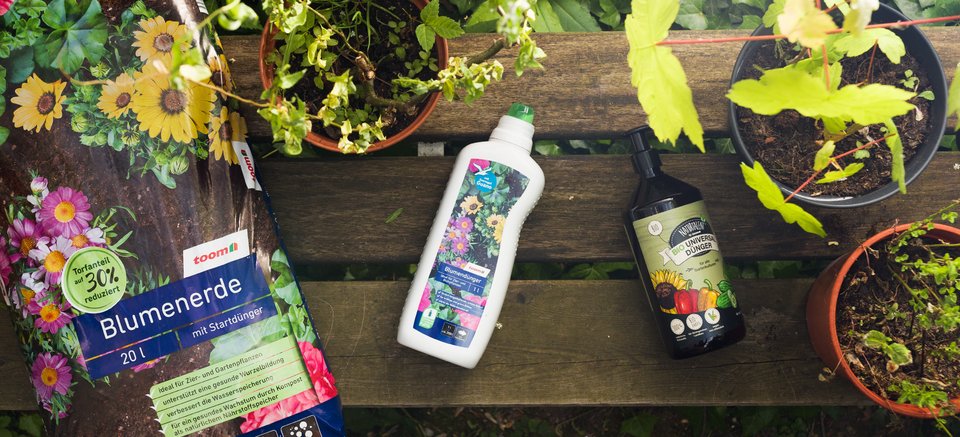
one: What makes our own brands special?
Robert Wiegand: First of all, customers can rely on our quality. We are so convinced of this that we give a five-year guarantee on all own-brand products. As most own-brand products bear the Toom name, this is of course a convincing message that also reflects positively on the sales brand. In addition, the price is of course right, as we generally offer quality at brand level around 15 to 20 per cent cheaper.
Last but not least, our own-brand products also prove that we are serious about Sustainability. Not only the products, but also the packaging is constantly scrutinised in this respect and receives numerous certifications. With the intensity that we show here and prove time and again, we are leading the way in the industry. We are convinced that our private label strategy as a whole is a competitive advantage.
one: Which private label share is the right one?
Robert Wiegand: Own brands play an important role in our product structure and are particularly important in some product ranges, such as the plant sector. Own brands currently account for just under a third of total sales. The coronavirus period and our store closures during the lockdown have reduced this share somewhat, as customers have increasingly turned to branded products during this time. However, we have planned for increases again in the coming years.
Much more important to us than the share of sales, however, is what our own brands contribute to the company's earnings. We take a close look at gross profit and only implement projects that help us to improve gross profit at the end of the day. This is why the gross profit share is the more important value for us when it comes to managing the private label strategy.
According to GfK, private labels recorded an increase of 1.2 percentage points in the first three months of this year and achieved a market share of 34.6 per cent. The market researchers recently registered the most significant increases in breakfast products (plus 3.6 points), staple foods (plus 2.9 points) and tinned food (plus 2.8 points). Private labels also gained significant market share in other food categories. In contrast, growth in the so-called near-food categories was below average
Detergents/cleaning and cleaning products (up 0.9 points) and cosmetics/personal care (up 0.8 points). GfK's experts attribute this development to the increased cost of living: "While many people had a good time during the lockdown and used the money saved from lost leisure activities to eat and drink well at home, they are now making sure that food shopping is not too expensive and that at least some money is left over for activities outside their own four walls."

